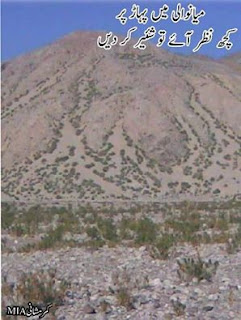No sensible man can
muster the courage to have a look at the picture of the deceased Alisha (a
transgender recently killed in Peshawar by extortionists) because innocence of
her face asks few questi0ns- I am the outcast, thrown away from the humans’
abodes yet my right to life was wrested from me, why? I did not interfere into
your lives except your festive occasions only to make them more charming and delightful for you. Then why my
presence was not tolerated on the planet?
Whatever the scientific
and biological reasons of transgender birth may be, but the social stigma they
carry from their birth to death is manifested in many ways. As soon family of the
transgender becomes aware of their child’s abnormality, they seek ways to get
rid of him. Those who escape home join their ilk in populous cities.
They are considered the outcast community and have no interaction with rest of
world, except a casual transaction on the festive occasions. Where they are
subjected to various kinds of humiliation and ill-treatment, but driven by the
necessity of survival they endure such treatment.
The recent target
killing of Alisha and the subsequent treatment meted out to her in the hospital,
police station, and media and by the public at large speaks volumes of our
status being human. Alisha was reportedly killed by the extortionists,
who wanted her to work for them against Alisha’s will. When she was carried to
the hospital, at a time when she needed treatment, doctors the masihas reportedly
wasted time on the issue whether she would be admitted into the male or female ward.
They thronged at the wounded body of Alisha and started examining the
biological features of transgender. Some of the masihas asked her
colleagues questions about their professional services and per night rate etc.
Alisha did not survive, but left a score of blots on the fabric of our humanity.
The same treatment was meted out to her by the police and Alisha also did not
receive due media coverage.
Very few would have
paid attention to the plight of these people. They have not been descended from
mars but born out the same womb wherefrom we have also born. They are humans
like us but differ only in sex, and have not born out of their own choice. Then
why should they carry a social stigma throughout their lives.
Our collective societal
indifference has grown to such an extent where it seems natural and justified
to consider the transgender outcast and considered them deservedly entitled to
the humiliation they suffer. Those few who speak for the rights and status of
transgender being humans, are not paid heed to and even considered abnormal. I
remember one of my classmates, who was quite sympathetic and sensitive about
the plight of transgender community, prostitutes and their ilk, once happened
to present his poem reflecting their plight, social stigma they carry, and the
ill-treatment meted out to them at the societal level. As he started reciting
the verses reflecting their plight and societal indifference towards them, the
audience hurled derogatory and discouraging remarks about the idea contained in
the poem. There was perhaps none in the whole auditorium who could sense
importance of the issue. The same societal indifference was reflected at a
larger level in the aftermath of innocent Alisha’s death.
The murderers must have
thought that t she was an outcast and had got neither family support nor
societal or legal protection, and thus she could be intimidated and pressurized
in any way ,even if results into her death, the issue will go unnoticed
,because there would be none to sue her case or take revenge of her blood. The
same happened when other members of her community protested her death before
the police station; they were much easily dislodged than the police can do with
other protesters.
Alisha’s
death at least set one tradition that her funeral prayer was offered in public
and was buried like other humans. But the grief ought to have turned us
to set one other tradition which was to make a pledge at the societal level that
the transgender should not be disowned and outcast after all we all are born
out of the same womb. Alisha’s community did their level best to demonstrate
the anger and seek societal and judicial justice, but their efforts did not
meet fruitful results. Having found closed all the avenues of relief; they
might have whispered that the fault lies in our stars.
Categories:
transgendered in pakistan
Read More










